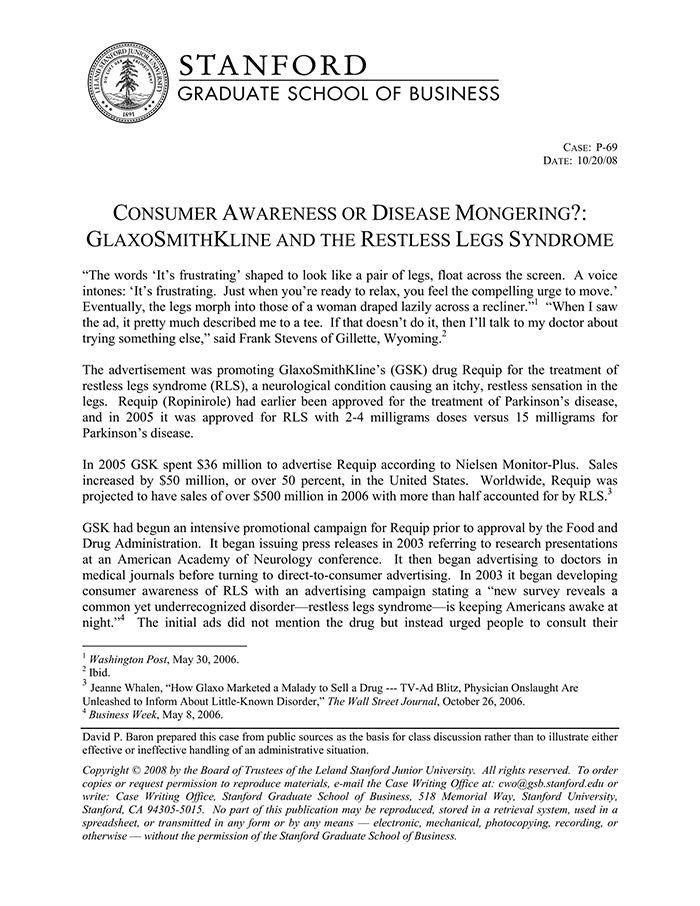Consumer Awareness or Disease Mongering? GlaxoSmithKline and the Restless Legs Syndrome
受取状況を読み込めませんでした
In 2005, GlaxoSmithKline (GSK) received approval from the Food and Drug Administration (FDA) to market Requip (Ropinirole) for Restless Leg Syndrome. Requip had already been approved for the treatment of Parkinson's disease. Prior the FDA's approval, GSK had already undertaken an intensive promotional campaign for Requip, issuing press releases, advertising to doctors in medical journals, and advertising direct-to-consumer. In 2003 it began developing consumer awareness of RLS with an advertising campaign stating that a "new survey reveals a common yet underrecognized disorder--restless legs syndrome--is keeping Americans awake at night." While GSK explained that its campaign was simply raising awareness about RLS, others disagreed. GSK was accused of 'disease mongering,' or trying to turn normal people with ordinary experiences into patients. This case explores GSK's tactics and the distinction between raising awareness and inappropriately promoting a drug.
【書誌情報】
ページ数:5ページ
サイズ:A4
商品番号:HBSP-P69
発行日:2008/10/20
登録日:2009/7/21


